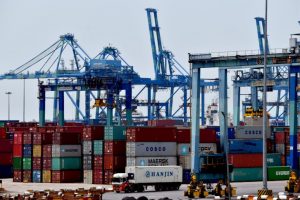
The business community needs to look at the fact that with increased risk, investors will simply look to have increased rewards, and to focus on those opportunities that deliver these results for investors, this will yield the best results for investment promotion. The question is can productivity reach above and beyond the levels of risk presented by the current situation?
The model foreign investor brings jobs, increase exports and much needed tax revenues, contributes to society, and transfers technology and expertise. Before all of this happens, those companies with global supply chains and international market share are able to spend considerable resources on due diligence and market intelligence. This process enables investment committees to see through the first layer of information available in the media. The question is: what are they finding beyond the media hype? Do current investment opportunities pass the cost benefit analysis required to press the ‘go’ button on the next billion of investment?
The global pandemic and the global trade war have brought into sharp focus the opportunities for companies involved in critical supply chains. While many companies and indeed individuals struggle, they struggle to meet demand. The supply of critical minerals, critical components, critical manufactured goods, and guaranteed delivery are the names of the game. A close eye on emerging technology trends and the materials used in these technologies is required if Malaysia is going to be able to attract more of these companies on shore.
The exit from China by those companies caught in the crossfire of the global trade war is another untapped opportunity. Many companies who are now rapidly weaning themselves off the cheap labour environment and promise of access to a massive consumer base are looking for safer locations with comparable cost benefit matrixes. With high growth economies and over 600 million consumers, ASEAN is an attractive proposition. In that context, Malaysia remains on the radar as a significant economy with a history of delivering on promises to investors.
Investment plans are easily put on hold during times of crisis except when the investment is filling a critical gap created by rapid change, and if that gap represents a loss of revenue or market share to a competitor. Greater focus is required to find such opportunities.
One area that the current government and indeed previous governments were guilty of was the practice of announcing “approved investments” and not the actual investment reaching the ground. To build confidence in announcements of “approved investments” there needs to be a followed-up announcement of actual investment. The gap, if any, can then be addressed on a case-by-case basis and presented to the public annually. This would be an innovative and welcome step towards transparency. Then the money allocated to run investment promotion agencies at the federal and state levels will be allocated with an increasingly focused and results-orientated manner.
Since the currently available investment figures are from 2020, the message is indeed clear – political stability is the preferred table at which investors enjoy sitting but productivity and the cost benefit analysis are the currencies required to gain a seat at that table.
In the final analysis, nothing has changed; there remains a clear and present need to focus on what we are good at to compete on the global stage. That is what will drive the results in trade and investment.
Nordin Abdullah
Founding Chairman
Comments on this subject were also featured in the following media:
Focus on what we’re good at – New Straits Times
COVID-19, perang perdagangan cipta peluang untuk syarikat rantaian pembekalan – BERNAMA

